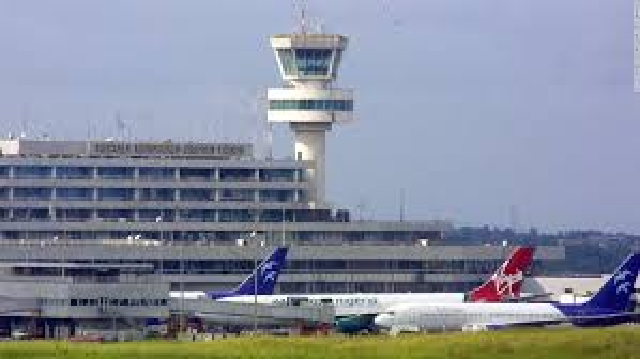Copyright bizwatchnigeria

For more than ten years, Nigeria’s aviation sector has operated under uncertainty. Airlines have struggled with trapped foreign funds, high leasing costs, aging infrastructure, and limited investor confidence. These challenges made profitability difficult and discouraged both local and international investment. Recent policy actions by the Bola Tinubu administration are beginning to change that picture. The government’s clearance of over 700 million dollars in trapped foreign airline funds, along with its renewed commitment to the Cape Town Convention, has sent a strong message to the global aviation community. Confidence is gradually returning to the market, and investors are starting to see new opportunities emerging in a sector that was once seen as too risky. Restoring Credibility in the Aviation Sector Credibility is the foundation on which global aviation operates. By releasing the trapped funds, Nigeria has demonstrated that it is ready to meet international financial obligations and re-engage responsibly with the global industry. In previous years, many international leasing companies avoided Nigeria because they could not guarantee repossession of aircraft or repatriation of earnings. The government’s renewed enforcement of the IDERA (Irrevocable Deregistration and Export Request Authorisation) framework now provides legal assurance to aircraft lessors and financiers that their assets and profits are secure. This policy change not only improves Nigeria’s reputation but also reopens the financing and leasing channels that are essential for any modern aviation economy. As a result, investors who had previously withdrawn from the market are beginning to reconsider their position, while domestic operators now have better prospects for accessing credit and upgrading their fleets. Market Response and Emerging Confidence Evidence of renewed confidence is already visible. Air Algérie has expanded its services to Nigeria by introducing direct routes to Lagos and Abuja. Local carriers are also becoming more ambitious, placing new aircraft orders and seeking international partnerships that would have been unlikely a few years ago. The larger opportunity, however, lies beyond passenger flights. Nigeria’s wider aviation value chain, which includes maintenance and repair (MRO), ground handling, catering, aviation finance, training, and cargo logistics, remains underdeveloped. With more than 20 million passengers travelling annually and an estimated 7 percent yearly growth in air traffic, the need for supporting infrastructure is increasing rapidly. Investors who move early into these ancillary areas can secure strategic positions before the market becomes saturated. Sectors such as leasing, logistics hubs, airport services, and aviation training schools offer some of the most immediate potential for growth. However, one of the government’s most significant initiatives under review is the establishment of a national aircraft leasing company. For years, Nigerian airlines have faced high financing costs and limited access to affordable leasing options because of the country’s perceived financial and regulatory risks. A national leasing company, especially one supported by both public and private capital, could change that situation. It would allow airlines to access aircraft at more competitive rates while ensuring that a greater portion of the value created in the sector remains within the local economy. For private investors and financial institutions, this initiative presents two clear avenues for participation. The first is through equity or co-investment in aircraft acquisition and regional sub-leasing. The second is through structured financing linked to aviation infrastructure such as hangars, simulators, and logistics facilities. If implemented effectively, this approach could position Nigeria as a regional leasing hub for West Africa. Key Areas of Investment Potential Several parts of the aviation industry are now positioned for renewed private investment. 1. Regional Connectivity: Air travel within West Africa continues to grow, but many routes remain underserved. Airlines that develop mid-range connections between secondary cities can create scalable business models while using Nigeria’s market size to anchor their operations. 2. Maintenance, Repair, and Overhaul (MRO): Most Nigerian airlines still conduct heavy maintenance abroad, which costs the industry millions of dollars each year. Building certified MRO facilities within the country could retain this expenditure and create new technical jobs. 3. Aviation Technology and Data Systems: As airlines modernise, demand is increasing for software solutions in areas such as scheduling, ticketing, fuel management, and predictive maintenance. Nigeria’s strong base of young tech talent provides an advantage for innovation in these areas. 4. Airport Infrastructure and Public-Private Partnerships: The government is seeking private participation in the modernisation of major airports. These partnerships provide long-term, stable returns for institutional investors, particularly those seeking dollar-denominated infrastructure assets. Together, these segments represent a complete ecosystem where sustainable value can be built rather than extracted. Remaining Challenges Despite recent progress, some challenges remain. Exchange rate volatility, high aviation fuel costs, and limited domestic demand continue to affect airline profitability. Power supply issues and the cost of security around airports also increase operational expenses. However, these are largely operational challenges rather than structural ones. The government’s commitment to regulatory consistency and investor protection is creating a clearer environment for business planning. Investors can now make long-term decisions with greater confidence that the rules will not change unexpectedly. Outlook for the Sector Nigeria’s aviation sector is entering a new phase. The government’s efforts to clear outstanding obligations and strengthen adherence to international standards have started to rebuild trust among global partners. The next steps will depend on consistent implementation, infrastructure expansion, and continued policy stability. If these reforms are maintained, Nigeria has the potential to become a major aviation and logistics hub for West Africa within the next five years. The market fundamentals already exist, and investor interest is returning. The question is no longer whether the industry will recover but how quickly it can translate policy reforms into long-term commercial growth.



